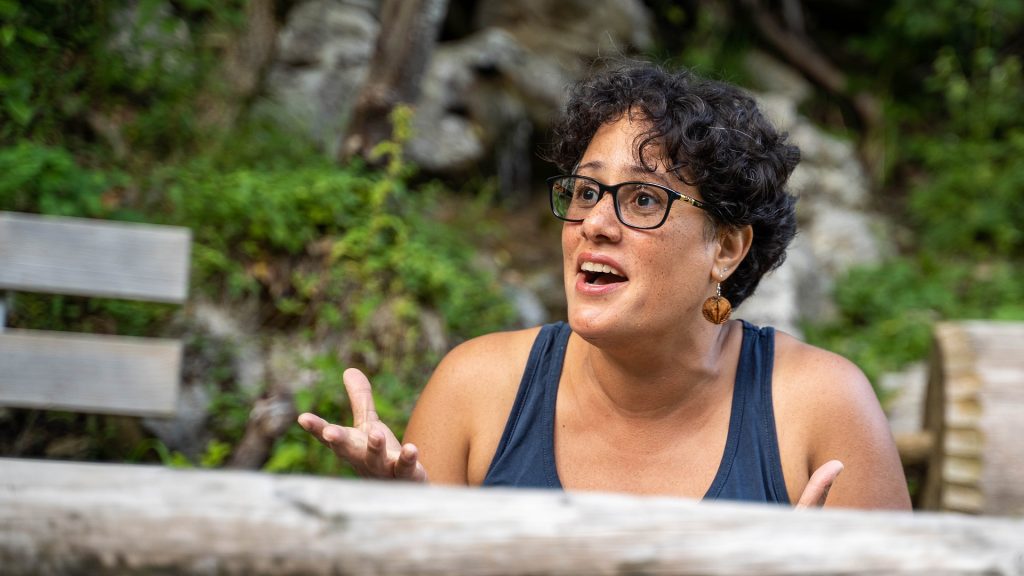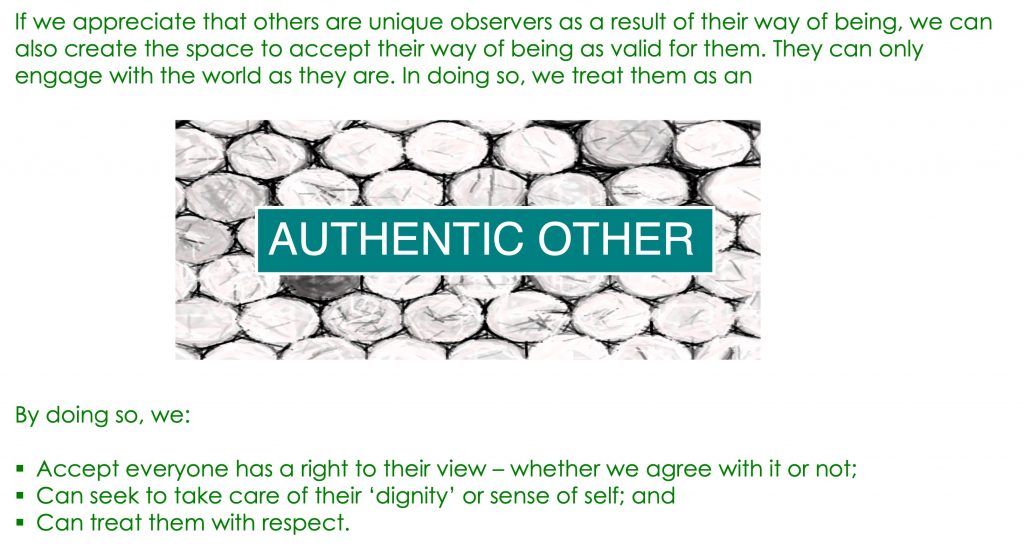
In this work, authenticity speaks to the alignment between how we actually live life and our way of being and our self-story. This idea was explored in the notes on ‘Authenticity’ and put forward the premise that we are always authentic in our actions yet this sometimes does not match our self-story. If we can see ourselves as always being authentic, we open the door to move towards self-acceptance and growth.
Alternatively, if we believe our self-story to be our ‘true self’ then we can easily fall into the trap of being flawed when we act in ways not aligned to our self-story. This approach is the basis of perfectionistic worldview and the accompanying suffering. This approach also lends itself to seeing our story of others as the ‘real them’. As our stories of others are founded in our own worldview, it generally includes an imposition of our expectations on them. We expect them to act as we would like them to act and dismiss the uniqueness of their way of being. To be clear, we all make judgments of others. Making assessments is something we all do. We cannot help ourselves. However, when we confuse our assessments and observations for true assertions (as in the idea of a ‘true self’), we fall into the trap of believing our perceptions of the world represent the world as it is and people as they are. We have seen that this belief is a fallacy. We perceive the world in our own unique way, and so does everyone else.
The result of having everyone having our own perceptions of the world is we create our own unique stories about things and people. We develop these stories to support our predictions and make our way in the world. We like to think that we ‘know’ someone, but we don’t. We may have developed some good interpretations of their patterns of being, but this is still an interpretation, not the truth about them. We do not relate to someone; we relate to our story about them and this is our creation. The implication here is that, if we want to change our relationship with someone, we have to change our story about them.
This is difficult if our story is based on our expectations of them and not on their interpretations of life. If we do this, we do not allow for the mutual development of shared stories about our relating and we expect them to come into our interpretations. In doing so, we delegitimise their worldview. We do not accept them as a unique human being with their own way of interpreting the world that is valid for them based on the current way of being. We seek to control them and have them fit our story of who they should be. Our relationship with them is based in the Paradigm of Control and the unhealthy relational dynamic this promotes.
If we want to build healthier relationships with others, then we have to find a way to engage in the Paradigm of Trust and this starts with accepting that others live in their own world of interpretation. We may not like some or many of their interpretations, but we can accept those interpretations as being authentic for them in their way of being.
Obviously, this can be very challenging when we have to engage with someone whose interpretations, standards and biases are very different to our own. Most people do not want to have to deal with big differences in which they and others see the world and so are drawn to find people who share similar views. Nearly everyone does this to varying degrees and the intrusion of social media into our daily lives has dramatically exacerbated the way in which we engage with others. Social media’s algorithms offer us many opportunities to access similar points of view and ‘echo chambers’ are created.
The reinforcement of similar worldviews easily leads us to block out other voices and we can trap ourselves within our own stories and a belief that our perceptions are the truth about the world.
Although it may be the more difficult route, accepting the authenticity of others provides a more lasting opportunity to develop shared meaning and purpose, which is the stuff of healthy relationships.
